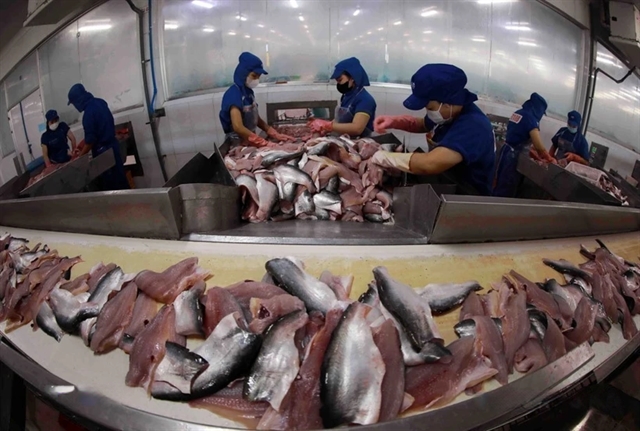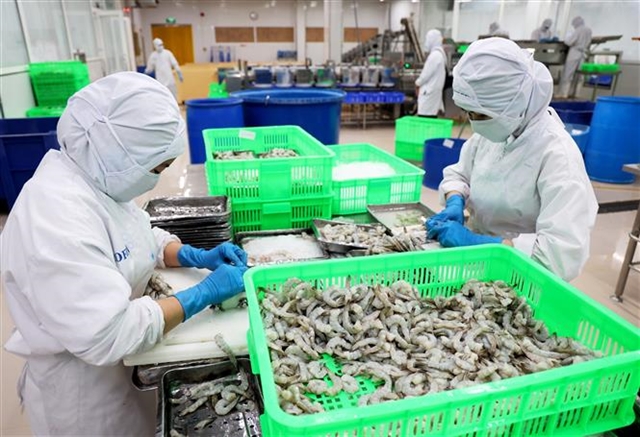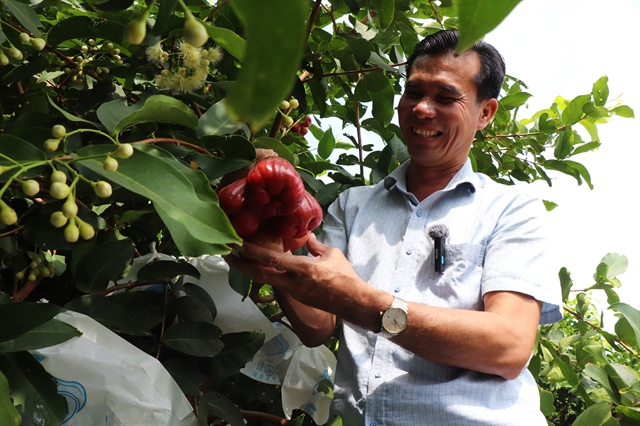 Economy
Economy

 |
| An export shrimp processing line in HCM City. — VNA/VNS Photo |
HCM CITY — Việt Nam's seafood industry is riding a wave of success, with November exports reeling in an impressive US$924 million, a 17 per cent annual increase, according to the Vietnam Association of Seafood Exporters and Producers (VASEP).
Total earnings in the 11-month period came close to $9.2 billion, an 11.5 per cent year-on-year surge, putting the country on track to meet its $10 billion export target for 2024.
Shrimp exports are set to top $4 billion by year-end, while other key seafood products like tra fish and tuna also posted robust growth. The export value of mollusks, in particular, skyrocketed by 180 per cent.
In addition, the domestic seafood industry is actively boosting the processing and export of by-products such as fish meal, said VASEP Communications Director Lê Hằng.
In the first 10 months of this year, fish meal netted $220.4 million, with full-year earnings projected at $264 million. China, consuming nearly 90 per cent of Việt Nam's fish meal exports, solidifies its position as the primary destination.
China (including Hong Kong) has eclipsed the US as Việt Nam’s largest seafood importer, with a remarkable 61 per cent growth in November. This pushed the cumulative import value for the first 11 months to over $1.7 billion, an annual 19 per cent rise.
The US market spent $1.67 billion on Vietnamese seafood in the 11-month period with a 21 per cent increase in November. Despite looming US tariffs, the outlook for December remains buoyant.
Hằng expressed confidence that Việt Nam will achieve its $10 billion export goal for aquatic products in 2024, an 11.5 per cent increase from 2023. Shrimp and tra fish remain the industry's backbone, with an optimistic forecast for seafood exports in 2025 despite challenges from international trade policies. — VNS




